Young activists inspire a Swiss audience on Human Rights Day
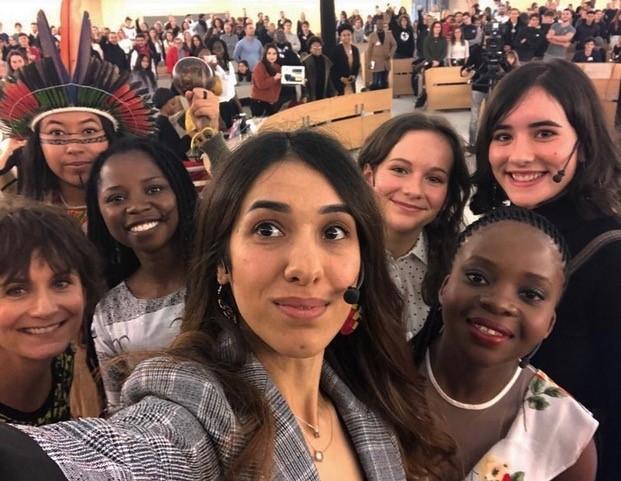
“I’m fed up.” “I don’t trust any of them.” “I don’t know what to believe.” These are the refrains, it seems, of 21st-century politics. And I’m not talking just about the United Kingdom and its never-ending Brexit misery, or of the upcoming presidential elections in the United States. I met an old Swiss friend out for a walk last weekend, and he said something similar, suggesting that truly inspirational leaders were nowhere to be found nowadays.
Meanwhile around the world, from France, to Lebanon, to Chile, to Iraq, public discontent is rising. That ‘fed up’ feeling is bringing people out onto the streets, many of whom seem to share my Swiss friend’s frustration at the lack of brave, visionary leadership.
But this week in Geneva, six young women proved the doubters wrong. To mark UN Human Rights Day, Geneva was host to a Young Activists SummitExternal link.
Memory Banda, campaigner against child marriage from Malawi; indigenous rights defender Hamangai Pataxo from Brazil; Rebecca Kabuo from the Democratic Republic of Congo, who fights for good governance; and Amy and Ella Meek from the United Kingdom with an innovative campaign against plastic pollution: all of them came to share their experiences of standing up for what they believe in, and defending their rights.
The guest of honour was Nadia Murad, the Iraqi Yazidi woman who has already won the Nobel Peace Prize for her campaign against sexual violence.
Inspiration for the future
They will be an inspiration, I hope, for years to come for the hundreds of young people who came to hear them. But, as Memory Banda explained, they can also be an inspiration for each other.
“I’m going to meet so many amazing young people who are change makers,” she said as the summit got underway. “They are doing a lot of things – they are changing perceptions, they are changing their communities, and me being a part of that is the greatest moment of my life. I’m here, and I’m going to enjoy it all, and it is going to be memorable for the rest of my life.”
Doubters might question whether these young women can really achieve anything. After all, climate campaigner Greta Thunberg has had to put up with all sorts of negativity, generally from those much older and of a different sex. Nevertheless, many others are investing their hopes in young people like her.
Youth taking the lead
It’s hardly new that young people tend to think they have better answers than their elders. But what seems to be happening today is that in a number of countries, the elders have no answers at all. Too many of them are paying lip service to the radical changes demanded by climate change.
Amy and Ella Meek, on the other hand, are walking the walk, with a practical scheme for alternatives to plastics which 460 schools in the UK have already signed up to.
On the other side of the world, Hamangai Pataxo is literally risking her life to defend her rainforest environment and her people. When she addressed the summit, she was close to tears as she explained how other campaigners, including a close friend, had been killed.
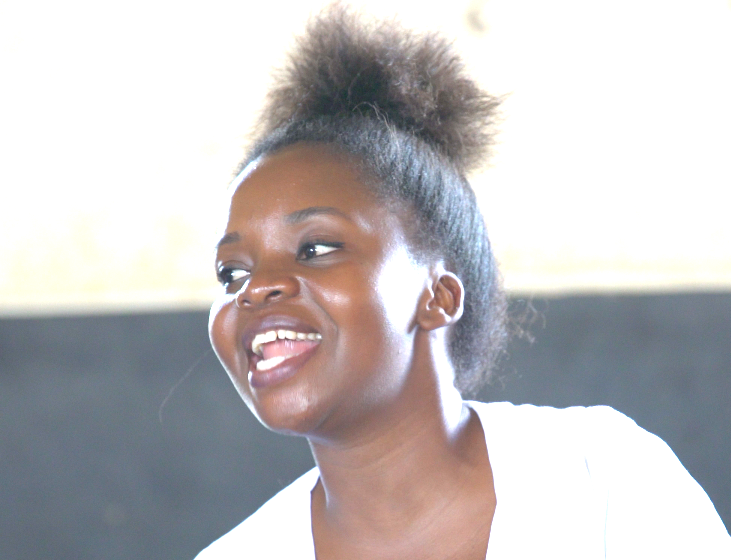
And while news headlines recently have been dominated by sordid details of sexist, even abusive, language and behaviour from a number of male world leaders towards women (yes, we all know who they are so I won’t bother naming and shaming them here), young women like Nadia and Memory are courageously standing up for the rights of women the world over to be safe from violence and abuse.
Nadia Murad was enslaved and raped by Islamic State. Now she travels the world demanding that no woman should ever be subjected to such violence again, and demanding justice for all those who have suffered it.
Memory Banda, whose own sister was forced to marry and have a child at the age of just 11, spends her time in Malawi’s schools supporting girls to say no to child marriage, and telling traditional leaders in no uncertain terms why the practice should be abandoned for good.
And while wealthy countries, in the face of financial crisis, tend – often with voter support – to take the knee-jerk route of cutting public services, in the Democratic Republic of Congo, a country which has suffered decades of conflict, Rebecca Kabuo campaigns for good governance. She and her colleagues clean the streets, they help to build houses, and they engage in peaceful demonstrations calling for better services. An activity which has led to arrests, and a spell in prison for Rebecca.
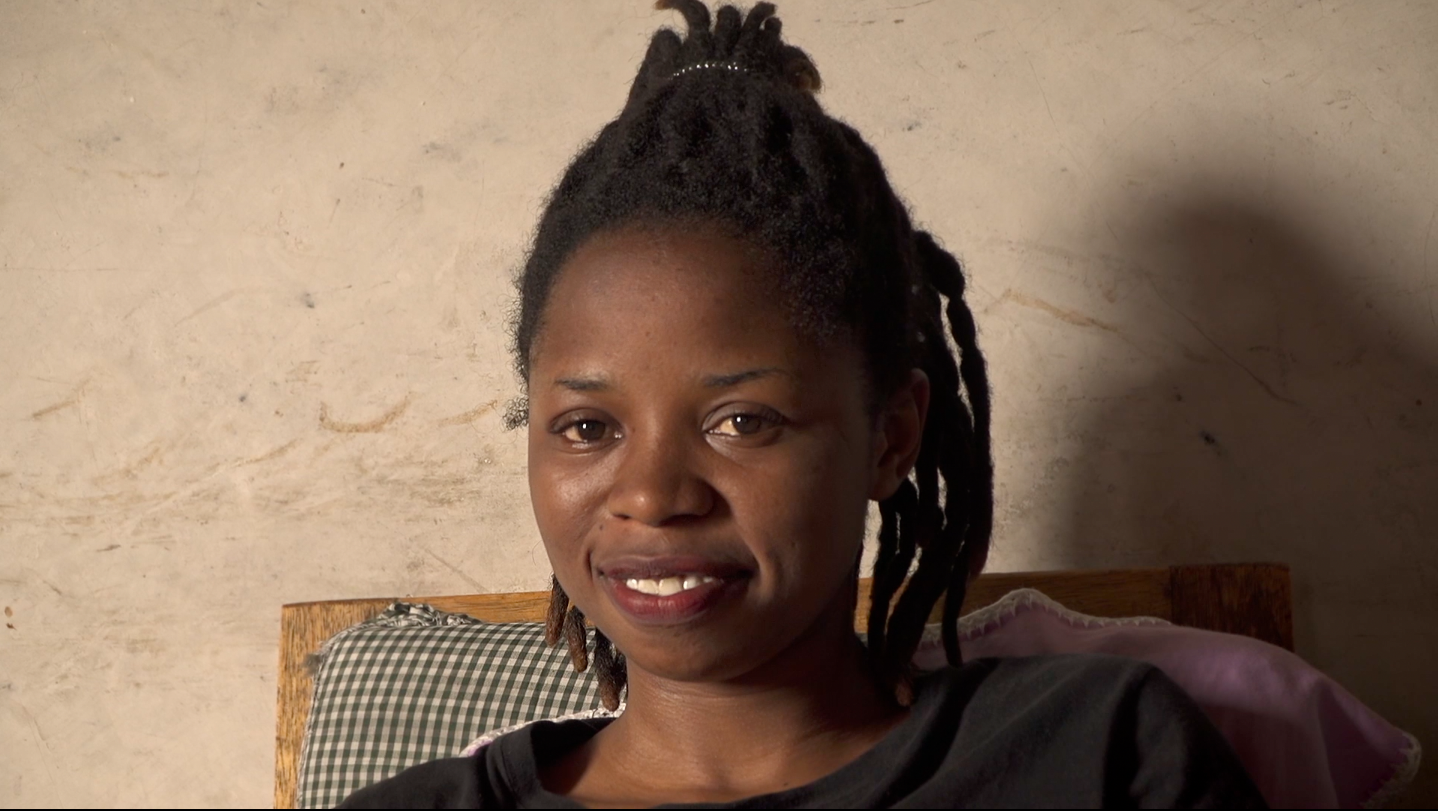
But is she daunted? ‘No,’ she said firmly.
‘You feel like you’re not alone’
For the 700 young people from Geneva who attended the summit, meeting and listening to these young women was clearly an honour, and many had questions for them. The young activists however, seemed unfazed by all the attention, and stressed instead how delighted they were to meet each other and swap experiences.
“It’s really nice to know that other children are doing things,” said Ella Meek, who is just 14. “Because sometimes all of these issues added up together can seem like a lot to manage, but then when there’s other children and other people that are doing things like this, it really helps you feel like you’re not alone.”
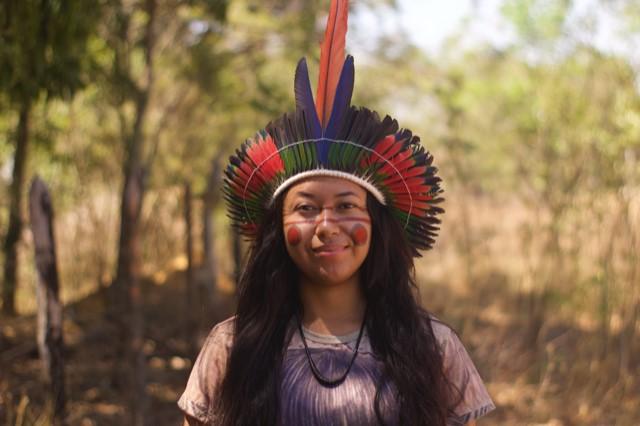
Others, like Hamangai Pataxo, hoped her presence in Geneva would raise greater awareness internationally of the challenges Brazil’s indigenous peoples face.
Nadia’s aspiration? That the international conventions and institutions born out of the Universal Declaration on Human Rights will, eventually, bring true justice for the crimes committed against her and her community.
“My dream and my hope, and I think every Yazidi, especially survivors, we want to see justice,” she said. “We want to see ISIS in the International Criminal Court. This will be really the end of our fight, and we will be able to rebuild our lives in our home, and in our community.”
What can I say but hats off, ladies. You are a true inspiration, and all our futures are better because of you.
You can follow Imogen Foulkes on twitter at @imogenfoulkes, and send her questions and suggestions for UN topics.

In compliance with the JTI standards
More: SWI swissinfo.ch certified by the Journalism Trust Initiative
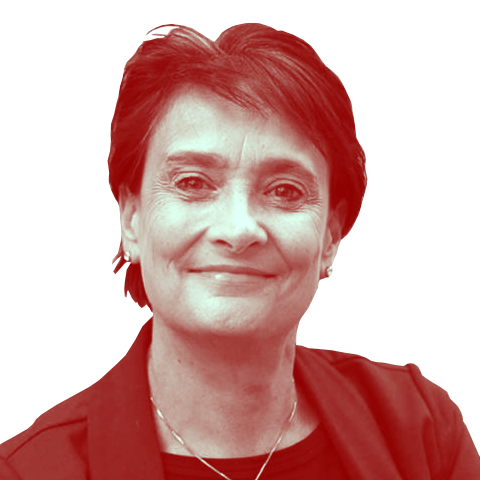

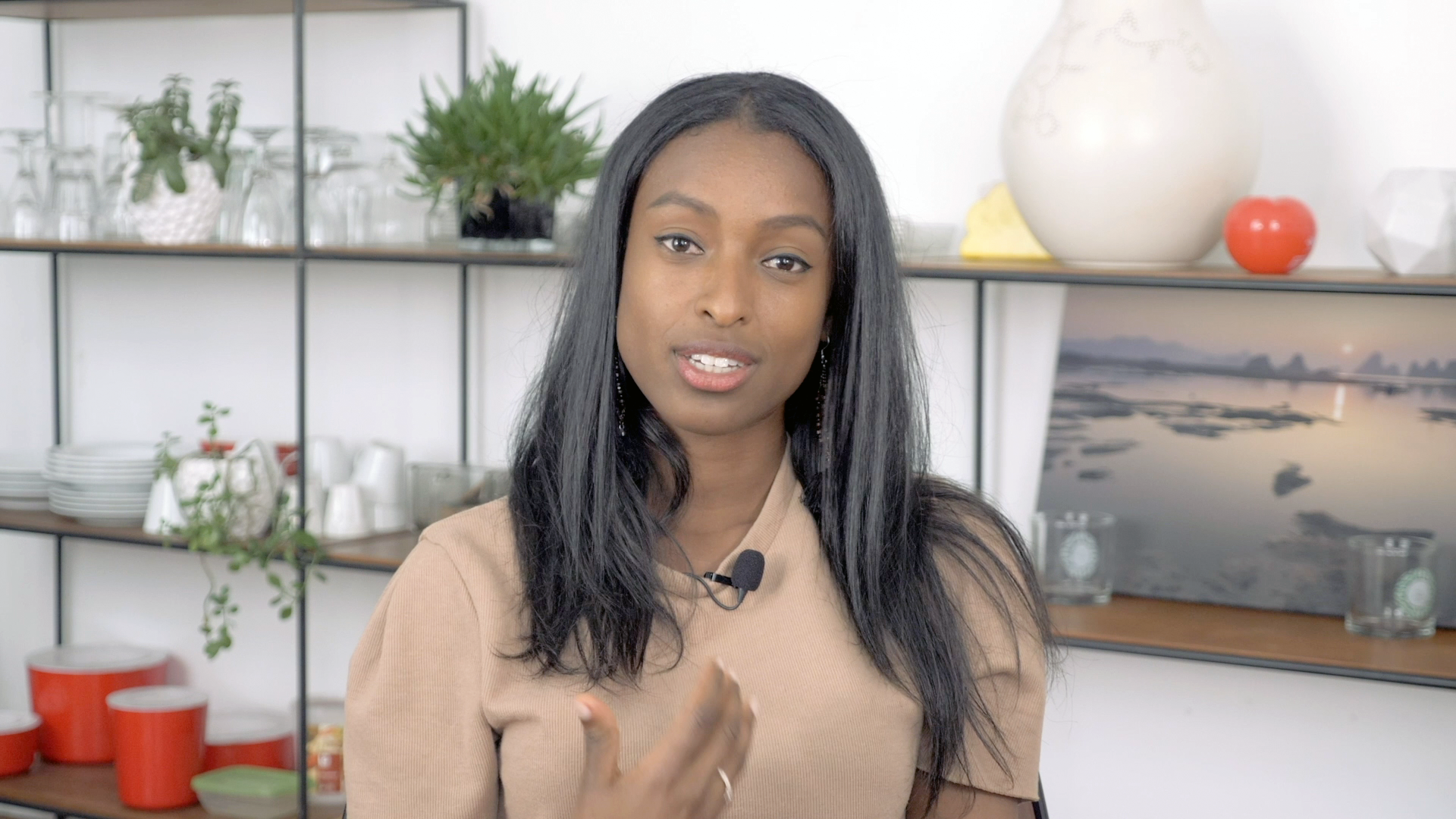
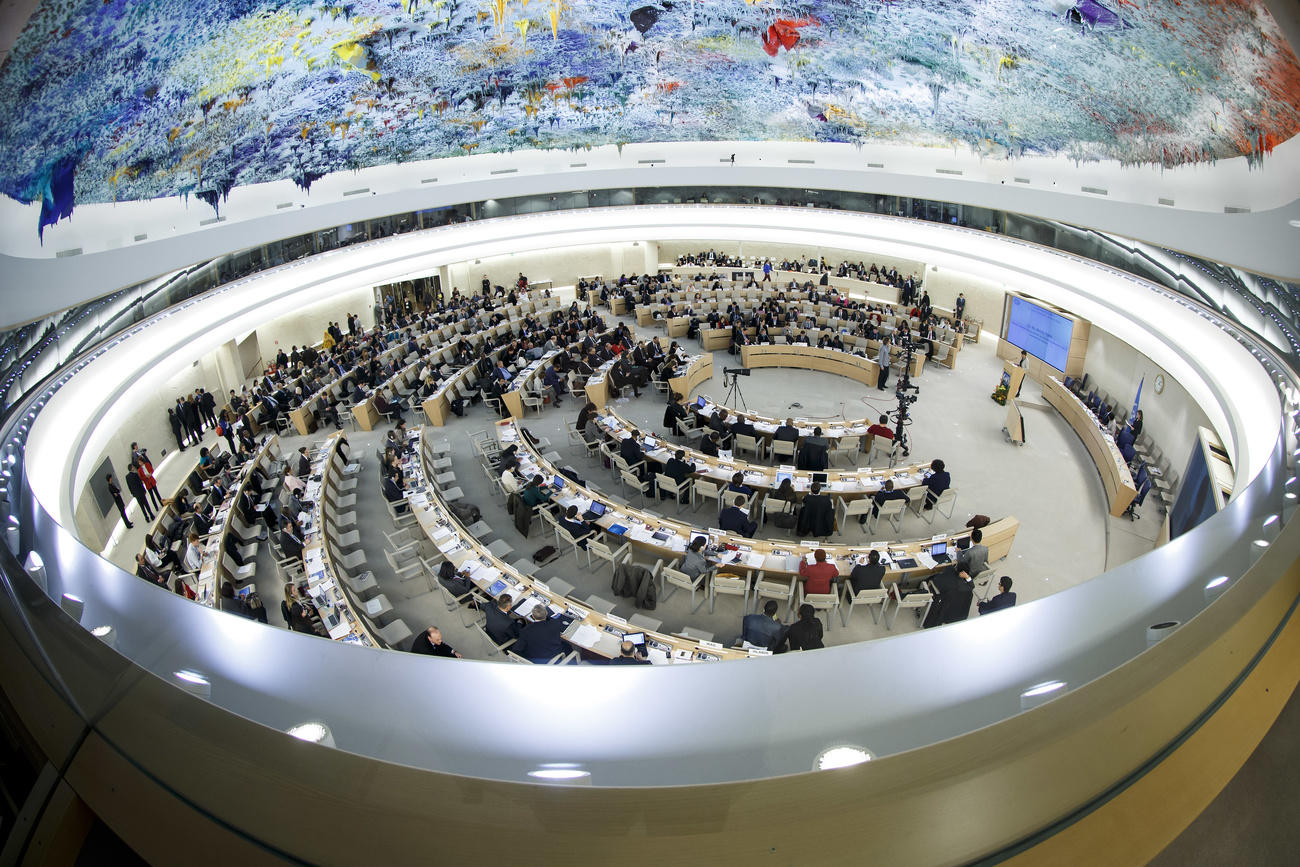
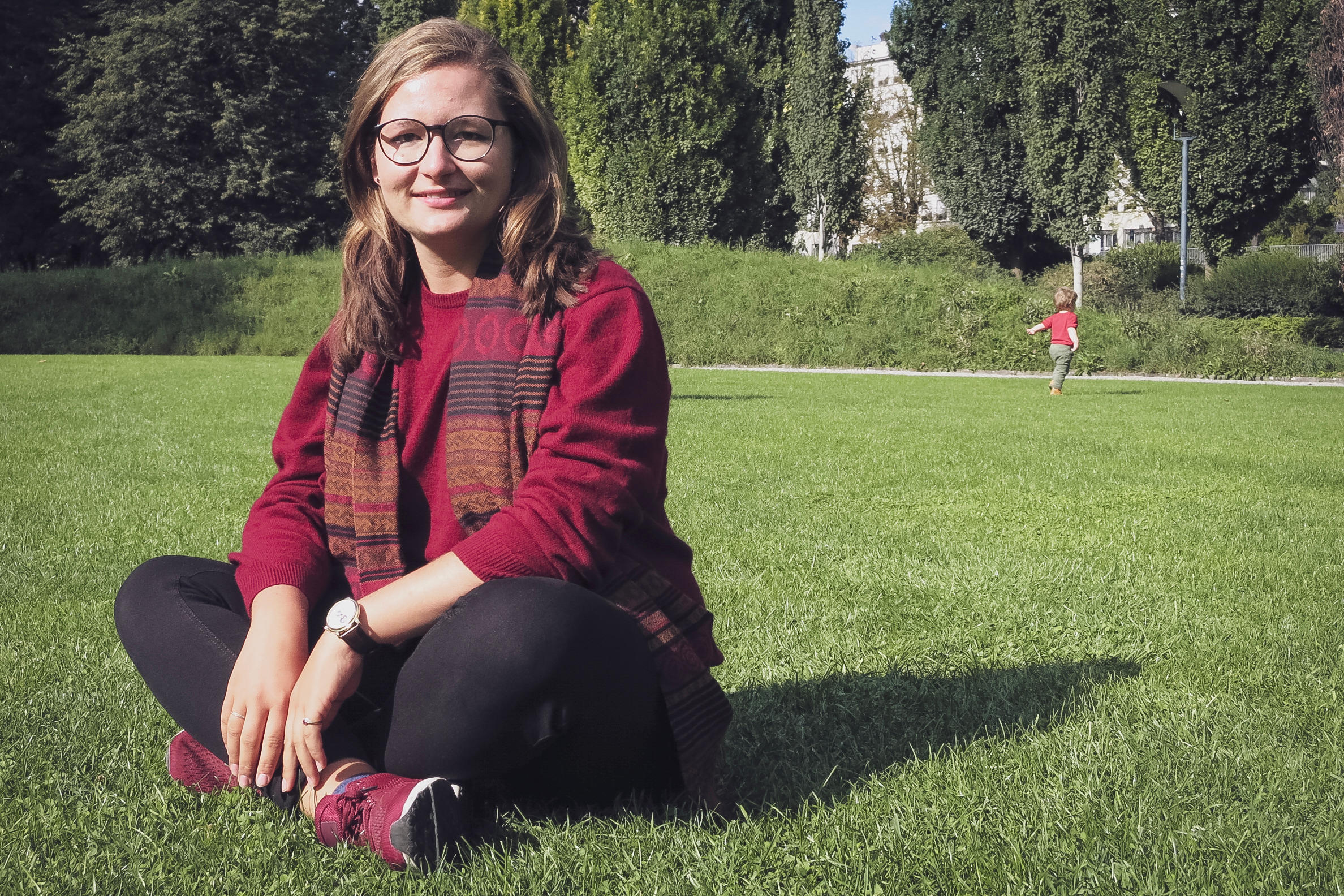
You can find an overview of ongoing debates with our journalists here. Please join us!
If you want to start a conversation about a topic raised in this article or want to report factual errors, email us at english@swissinfo.ch.